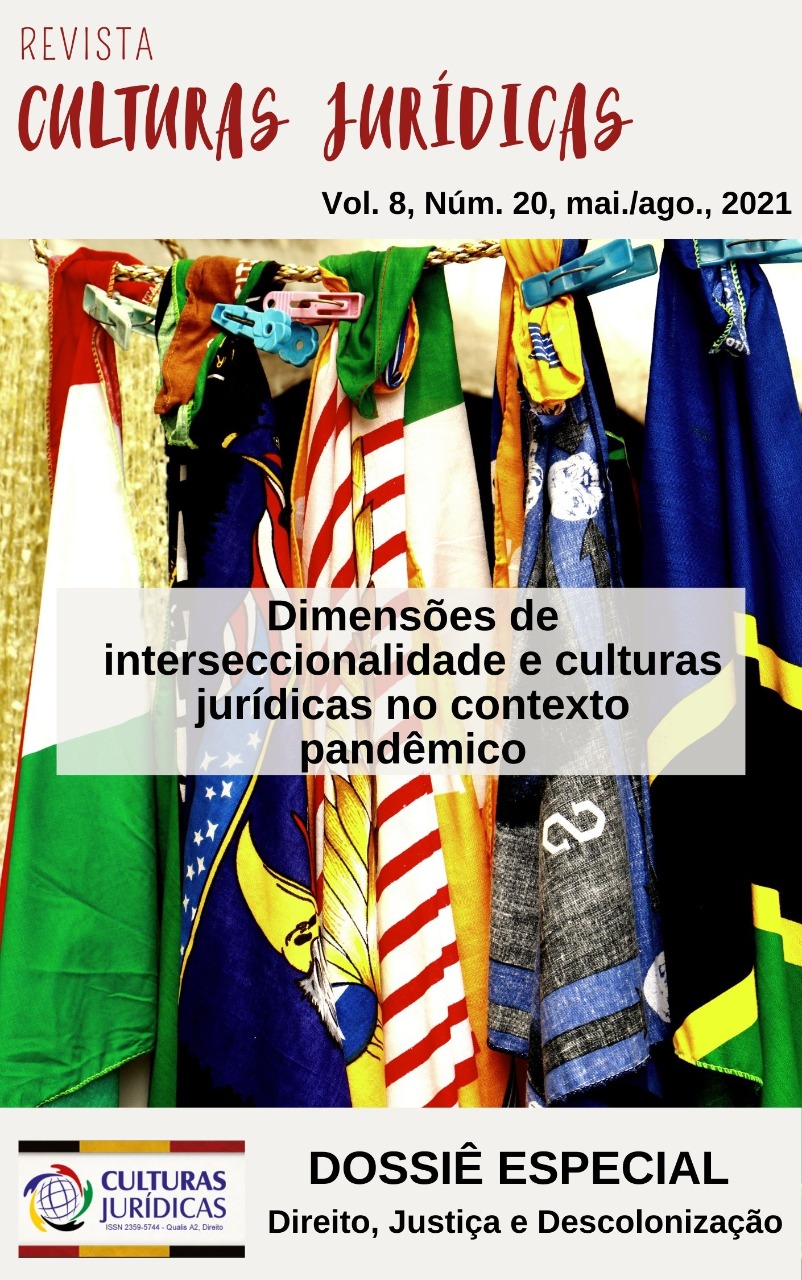CONFLUER POUR DÉCOLONISER :
AFRODIASPORES ET AMÉRINDIENS POUR LA CRITIQUE DU DROIT
Résumé
Cet article effectue une revue bibliographique et une analyse critique des théories et pratiques de la décolonisation du point de vue de la diaspora africaine, de l'insurrection indigène et de la critique du droit, en relation avec les centralités épistémiques qui ont traversé le temps et l'espace pour détruire et démobiliser. l'irruption dans tous les lieux qui se présentent. Nous sommes partis de l'hypothèse qu'il existe une faille dans la manière dont les cadres théoriques de la colonisation sont encore appréhendés dans la modernité. En ce sens, l'objectif est de rompre avec les notions eurocentriques selon lesquelles le voyage de la colonisation représentait une simple découverte des terres du Sud Global, mais plutôt une invasion qui n'est pas seulement comprise géographiquement, mais aussi épistémiquement. Ainsi, les apports aphrodiasporiques et amérindiens représentent des insurrections importantes qui remettent en question les mécanismes coloniaux violents et oppressifs de la hiérarchisation raciale, tout en critiquant les héritages qui structurent les questions de discrimination ethnico-raciale dans la modernité fondée sur eux. Par conséquent, en ce qui concerne ces premières contributions, il est mentionné que des éléments centraux tels que l'Afrocentralité et Ubuntu constituent un puissant cadre théorico-philosophique, pratique et onto-épistémologique, qui permet un changement positif dans la réalité socio-environnementale des êtres vulnérables. . Et en ce sens, par rapport aux apports des peuples autochtones d'Amérique, la vie bonne est vue comme une expression biocentrique et matérielle qui exige une action communautaire et dialogique avec la nature. La manière dont le racisme et la pensée eurocentrique ont supprimé la culture et les subjectivités africaines et amérindiennes a fait que nombre de ces pensées et cosmovisions ont été décimées jusqu'à la modernité. En ce sens, il a été soutenu que le droit, à son tour, devrait (devrait) agir dans ce contexte afin de produire la justice, en termes radicaux et matériels, et la reconnaissance de groupes historiquement subordonnés par les logiques du colonialisme et de la colonialité, la décolonisation les structures institutionnelles et promouvoir, en somme, une subversion des épistémologies du Sud.





